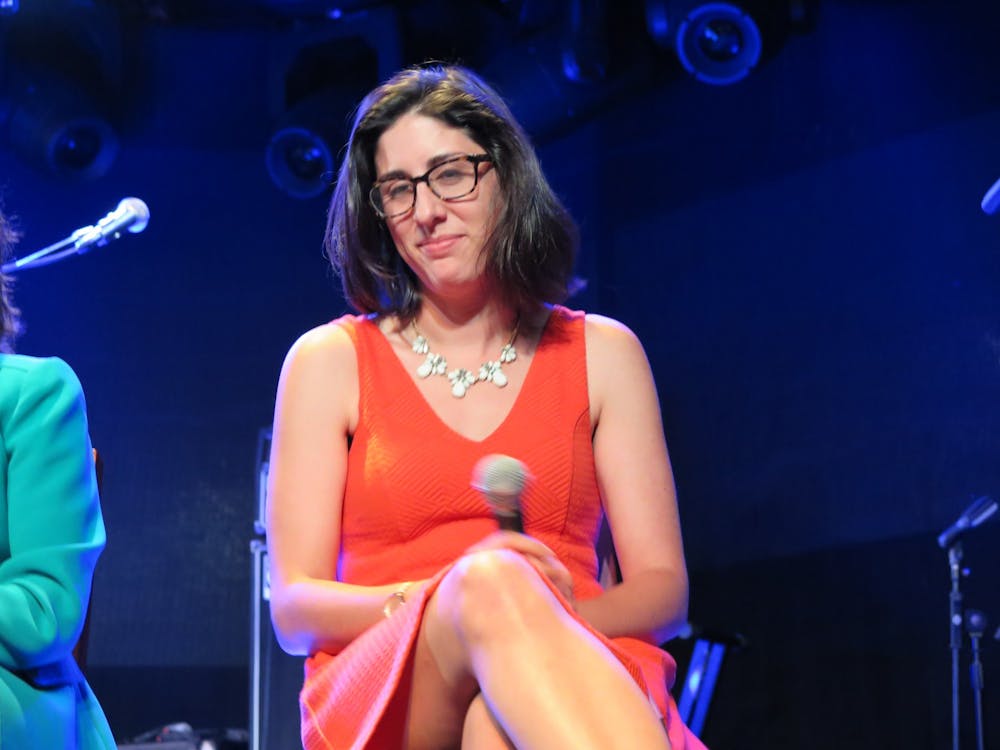On Wednesday, March 4, acclaimed healthcare reporter Sarah Kliff discussed the legacy of the Affordable Care Act (ACA), 10 years after it passed, on a panel hosted by the Woodrow Wilson School for Public and International Affairs.
Kliff is an investigative reporter for The New York Times, focusing on the American healthcare system and the ways it serves its patients. Before coming to the Times in June 2019, she was a senior correspondent at Vox. Her work was cited in the 2012 Supreme Court decision that upheld the ACA, and she was one of the last to interview President Barack Obama before he left office.
Over the past year, Kliff has spent much of her time investigating various threats to our healthcare system, especially following the 2017 effort to repeal Obamacare.
During the talk, she told the story of one woman she has interviewed. A mother sat alone in her car, holding her breath outside the doors of an emergency room in Kansas, described Kliff. The woman’s daughter was in the backseat, watching “The Little Mermaid” as the mother waited in agony for her child’s seizures, the result of an accidental dramamine overdose, to stop.
Kliff explained why the woman did not just take her daughter inside: American healthcare is simply too expensive.
According to Kliff, this woman’s story is not unique. People across the country are worried about how much they are having to pay for healthcare. Kliff discussed a “ripple effect” with small businesses, advertising companies, and hiring agencies worried about the cost of care — all feel illness is too expensive to tackle.
Many legislators have put forth solutions to this crisis.
“You see Democrats talking about public options, [specifically] ‘Medicare for All,’” Kliff said.

Medicare for All is a bill proposed by Senator Bernie Sanders, a Democratic presidential candidate. The plan would align the American medical system closer to the current Canadian one, in which every citizen is required to enroll in a public health plan.
Sanders’ plan is meant to particularly aid regions with high Obamacare enrollment, such as Kentucky, according to Kliff. In her time at Vox, Kliff traveled to and reported in regions that had both high rates of Trump voters and high enrollment in the ACA.
“I wanted to understand what had happened [there],” said Kliff. “Why did people vote for a president who was specifically promising to repeal their healthcare?”
“[Experts] had a lot of theories; the leading one was that people just didn’t understand what they were voting for,” Kliff said. “When I went there to do my reporting, I found that that really wasn’t the case ... they were just really frustrated with how their insurance was working.”

The conversation then shifted to a more time-sensitive topic.
Kliff noted her work has become increasingly more important in recent days as the coronavirus outbreak has tested the limits of the American healthcare system.
“We advertised this as the 10th anniversary of the [Affordable Care Act], but we didn’t realize we’d be dealing with a global health crisis,” said moderator Heather Howard, Lecturer in Public Affairs and Director of State Health and Value Strategies.
Kliff said that though the United States is among the most developed countries in the world, the way that our healthcare system is structured ultimately makes it difficult to say with certainty that the United States is equipped to handle the coronavirus.
“Our health system isn’t used to this,” Kliff said.
People are being charged thousands of dollars just to get a test for the coronavirus, whether the test comes back positive or not, according to Kliff. She shared a story with the audience of one person she spoke with about what he would do if he showed symptoms of the coronavirus.
“You know, I would go if it was the day after pay day,” her interviewee told her.
The panel, entitled “Obamacare Turns 10: Where Does Healthcare Go Next?” was held March 4 at 4:30 p.m. in the Friend Center by the Wilson School.








